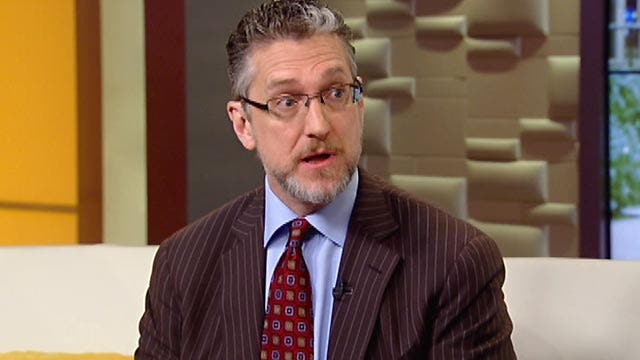Could sanctions against Russia lead to World War III?
Author and global financial analyst Kevin Freeman comments
Russian forces on Ukraine's border could carry out an "incursion" into the country and accomplish their objectives in three to five days, NATO's top military commander said Wednesday.
Philip Breedlove, NATO's supreme allied commander for Europe, said its members spotted signs of movement by a small part of the Russian force overnight but no indication that it was withdrawing, Reuters reported.
The four-star U.S. Air Force general has been ordered to devise plans to provide visible reassurance to alliance countries in Central and Eastern Europe that other NATO nations are ready to help protect them on land, air and at sea.
Breedlove told Reuters and The Wall Street Journal he would give NATO representatives a list of options and submit his recommendations as to which ones to choose. The options would cover northern, central and southern sections of Russia's western border.
"This new paradigm, and these actions by Russia, clearly should cause us to rethink our positioning and posturing of NATO forces," Breedlove said.
Meanwhile, Secretary of State John Kerry, in Brussels for a meeting of the US-EU Energy Council at European Union headquarters, denounced the use of energy as a weapon in the crisis, a day after Russia sharply hiked the price for natural gas to Ukraine.
Kerry says supplies of oil and gas have to be secured throughout the world in order to prevent their being used as political leverage or tools of aggression. He said no nation should be able to use energy to "stymie a people's aspirations."
Russia also threatened to reclaim billions in previous discounts for Ukraine, raising the heat on its cash-strapped government. The move is expected to eventually hit Ukrainian consumers hard. Household gas prices in Ukraine are set to rise 50 percent beginning May 1.
On Tuesday, an estimated 35,000 to 40,000 Russian troops equipped with tanks, other armored vehicles and fixed and rotary wing aircraft remained positioned near the border with Ukraine, a NATO military official told The Associated Press, speaking on condition of anonymity because of the sensitive nature of the information.
Despite annexing Crimea, Russian President Vladimir Putin and other Kremlin officials have said that Russia has no intention of invading other areas of Ukraine. Defense Minister Sergei Shoigu insisted Tuesday the Kremlin wants a "political settlement that would take interests and rights of the entire Ukrainian people into account."
The ministers from NATO's 28 member nations on Tuesday moved to beef up the defenses of front-line alliance members and ordered suspension of all "practical civilian and military cooperation" with Russia, though they made sure a line of communication with the Kremlin remains open at the ambassadorial level.
To reassure skittish allies feeling menaced by a more assertive Russia, especially the alliance's eastern-most members, the U.S. has already sent six F-15 fighters to perform air patrols over the Baltic and deployed a dozen F-16s to Poland. He noted that the U.S. had previously dispatched the USS Truxtun, a guided-missile destroyer, to the Black Sea.
The Truxtun has already left the Black Sea after taking part in naval exercises with NATO allies Romania and Bulgaria that had been scheduled before the Ukraine crisis.
A senior U.S. defense official said the U.S. is likely to send another warship to the Black Sea, but there was no decision on which ship and when it would be sent. The official, who was not authorized to speak publicly about the matter, spoke on condition of anonymity.
Also Tuesday, the Russian parliament annulled its deal with Ukraine to rent its Black Sea Fleet's base in Crimea until 2042 for $98 million a year as well as discounts for Russian natural gas.
In Kiev, Ukrainian police moved to disarm members of a radical nationalist group after a shooting spree. Such groups played a key role in Viktor Yanukovych's ouster, but quickly fell out with the new government in Kiev. Many activists are still encamped on Kiev's Independence Square, known as the Maidan, and have signaled their intent to remain until the May 25 presidential election.
Last week, a leader of the most prominent radical group, the Right Sector, was shot dead while resisting police. Right Sector members then besieged parliament for hours, demanding the resignation of Interior Minister Arsen Avakov. They lifted the blockade after lawmakers set up a panel to investigate the killing.
Late Monday, a Right Sector member shot and wounded three people outside a restaurant adjacent to Independence Square, triggering a standoff that lasted overnight.
Police responded by surrounding the Dnipro Hotel, which Right Sector had commandeered as its headquarters, demanding that the radicals lay down their weapons and leave. Avakov said Right Sector members agreed Tuesday to do so.
The Associated Press contributed to this report.









































